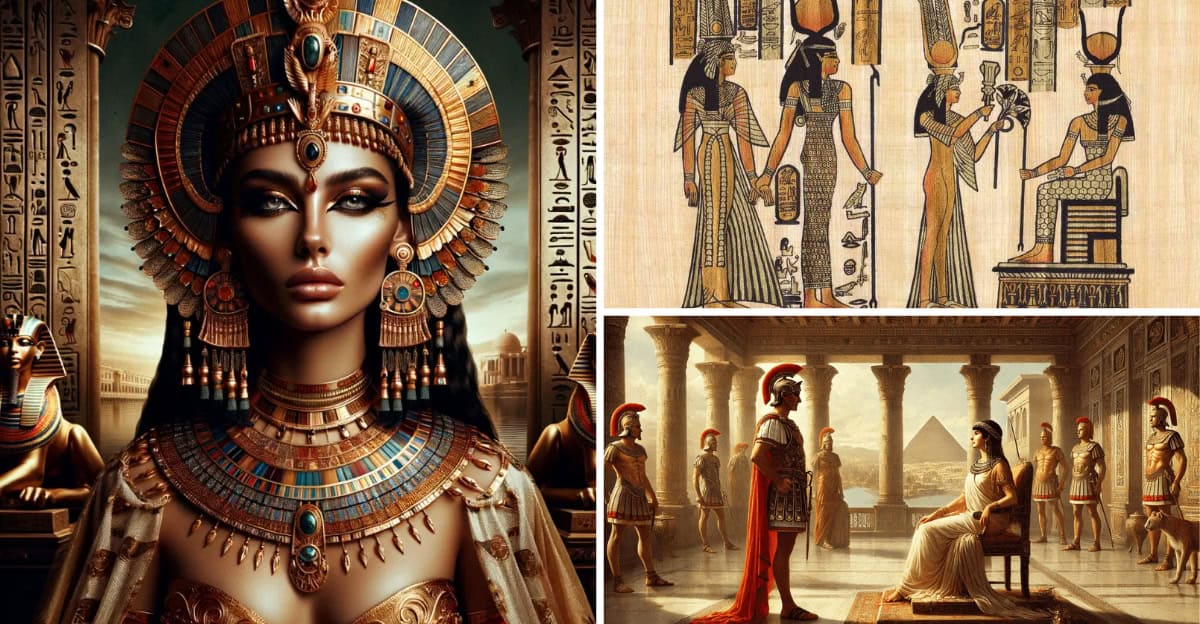Explore the fascinating history of Cleopatra, the last active ruler of the Ptolemaic Kingdom of Egypt.
This blog post dispels common myths and offers a true look at her life, leadership, and legacy.
1. Cleopatra’s Royal Lineage

Cleopatra’s lineage was a unique blend of Greek and Egyptian heritage. Born in 69 BC, she was a descendant of Ptolemy I, a Macedonian Greek general who served under Alexander the Great.
Her family ruled Egypt after Alexander’s empire fragmented.
Though Cleopatra often embraced Egyptian customs, she was culturally Greek and spoke the language fluently.
Her reign marked the fusion of these two rich cultures, which shaped her leadership style and political strategies.
This dual identity allowed her to navigate the complex political landscape of the era, bridging two worlds with distinct traditions.
2. A Multilingual Scholar
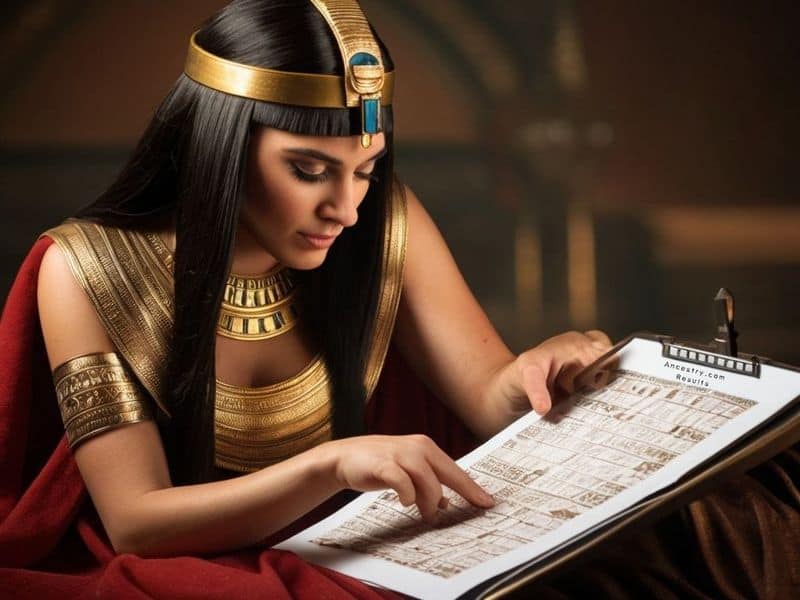
Cleopatra was a polyglot, reportedly speaking nine languages. This skill was rare among rulers of her time and served as a significant political tool.
Her ability to communicate directly with various peoples and diplomats enhanced her diplomatic prowess.
Unlike many of her predecessors, she learned Egyptian, endearing her to her subjects and solidifying her image as a true Egyptian queen.
This linguistic talent not only symbolized her intelligence but also illustrated her dedication to understanding and connecting with the diverse cultures within her realm, making her an effective leader.
3. The Nile and Economic Prosperity
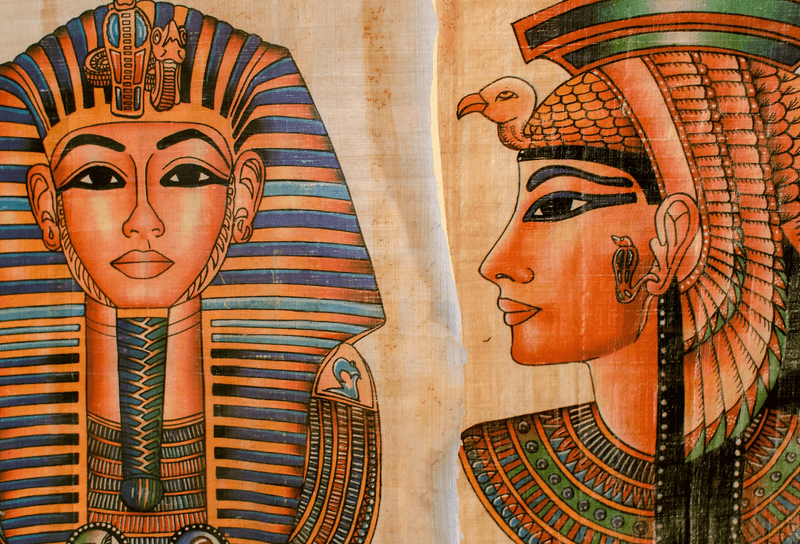
Under Cleopatra’s rule, the Nile was more than a river; it was the lifeblood of Egypt’s economy.
Her administration focused on maximizing agricultural productivity and securing trade routes.
The annual flooding of the Nile enriched the soil, providing ample harvests that sustained the population and boosted Egypt’s wealth.
Cleopatra’s strategic alliances ensured a steady flow of resources and goods, strengthening her kingdom’s economic standing.
This prosperity provided the foundation for her political maneuvers, allowing her to maintain power amidst the Roman Empire’s growing influence in the region.
4. Alliance with Julius Caesar
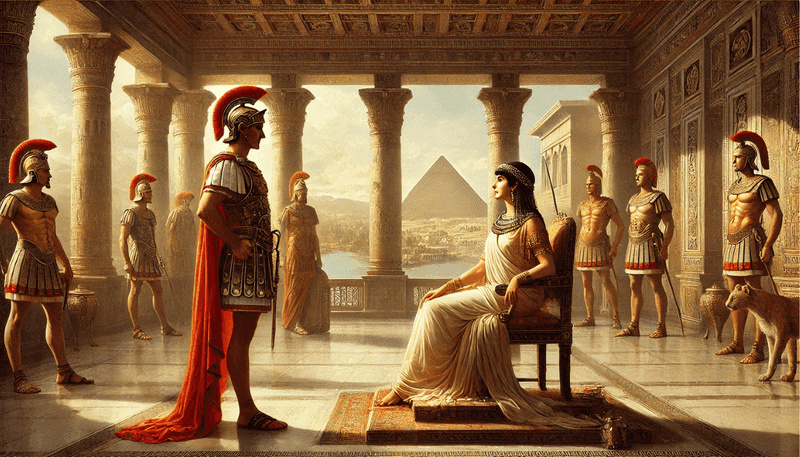
Cleopatra’s alliance with Julius Caesar was both personal and political. In 48 BC, at around 21 years old, she met Caesar, who became both her lover and a powerful ally.
Their relationship solidified her position on the throne amidst a civil war with her brother Ptolemy XIII.
Their son, Caesarion, symbolized this union, representing a potential heir linking Rome and Egypt.
This alliance exemplified her strategic acumen, leveraging personal relationships to bolster her political power and secure her reign in a tumultuous period.
5. Cultural Patronage and Influence
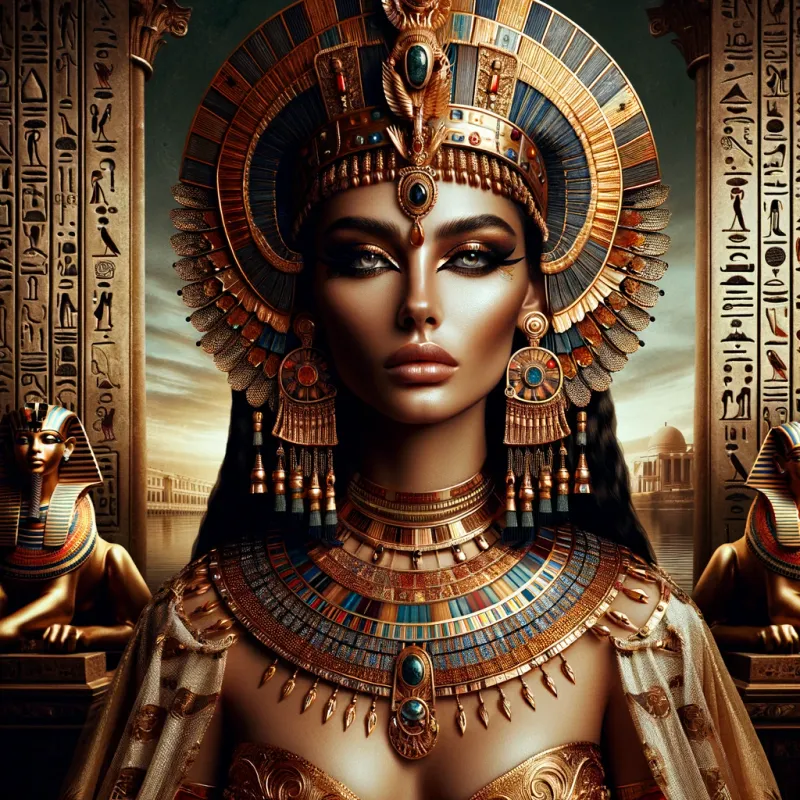
Cleopatra was not only a political leader but also a patron of the arts and sciences. She fostered a vibrant cultural scene in Alexandria, inviting scholars, artists, and thinkers to her court.
This patronage helped Alexandria become a center of learning and culture, rivaling even Rome in its intellectual contributions.
Her support extended to monumental architecture and religious practices, reflecting her commitment to the cultural and spiritual life of her people.
Cleopatra’s influence in this area showcased her vision of a thriving, intellectually vibrant Egypt, enriching her legacy beyond politics.
6. The Iconic Meeting with Marc Antony
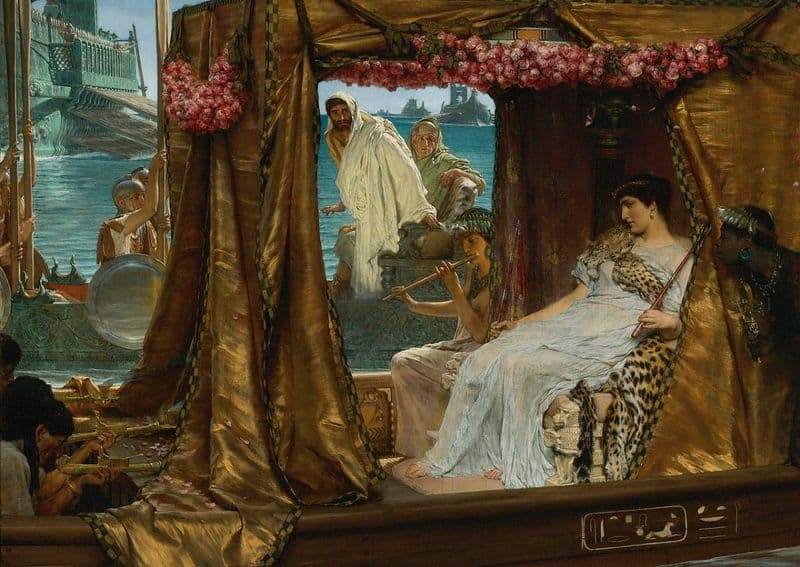
Cleopatra’s meeting with Marc Antony is legendary, rooted in both romance and politics. At 28, she met him on her opulent barge, displaying her wealth and splendor.
This encounter led to a powerful partnership, both personal and political, with Antony.
They became lovers, and their union produced three children. This alliance strengthened her position against Roman adversaries and reinforced her influence.
Their relationship, though ultimately tragic, highlighted Cleopatra’s ability to form strategic partnerships, using her charm and intelligence to navigate the perilous political waters of the time.
7. Military Leader and Strategist
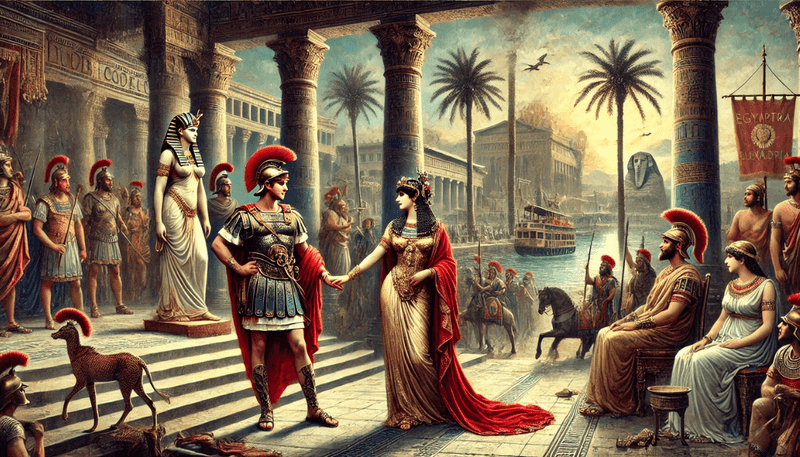
Cleopatra was not simply a figurehead; she was an active military leader, often depicted leading naval fleets. Her strategic mind was crucial in various conflicts that tested her reign.
Her involvement in military campaigns demonstrated her commitment to protecting Egypt’s sovereignty and interests.
By personally engaging in these affairs, she defied traditional gender roles of the era, embodying a model of leadership that combined intellect with martial prowess.
Her military acumen was an integral part of her legacy, illustrating her resilience and determination in the face of Rome’s looming threat.
8. The Fall of Cleopatra

Cleopatra’s end was as dramatic as her life. In 30 BC, at 39 years old, she faced defeat by Octavian’s forces.
Her alliance with Marc Antony had faltered, leading to his suicide.
In the face of inevitable capture, Cleopatra chose to end her life, famously through the bite of an asp. Her death marked the end of Ptolemaic rule and Egypt becoming a Roman province.
Her demise left a lasting legacy enveloped in mystery and drama, symbolizing both the end of an era and the enduring allure of her storied life.
9. Cleopatra’s Enduring Legacy
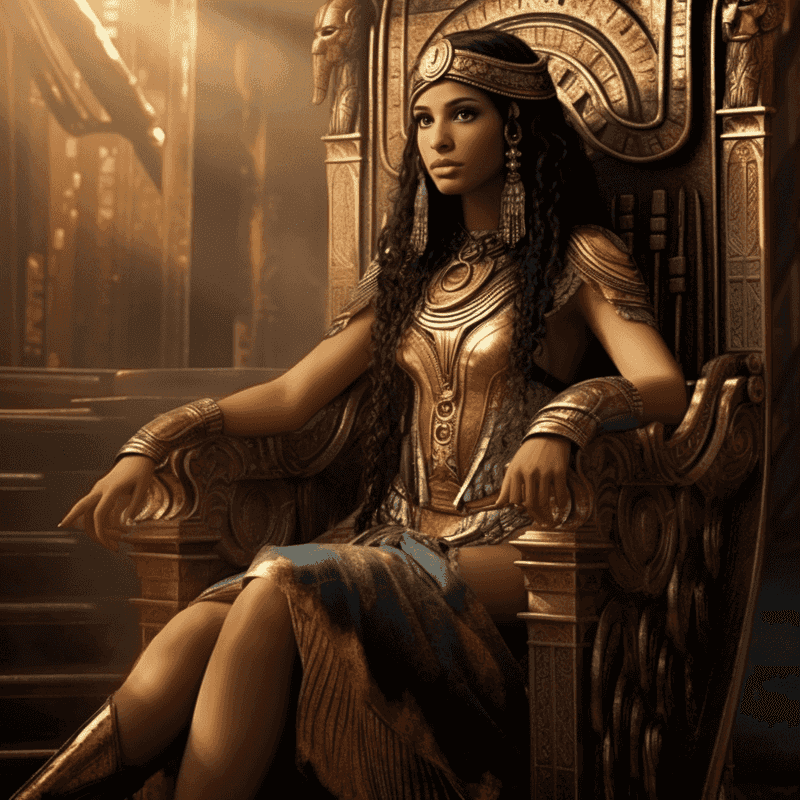
Cleopatra’s legacy endures, transcending her historical role. She has become an icon of female power and intrigue, immortalized in art, literature, and film.
Her story, often romanticized, continues to captivate imaginations, blending historical facts with legend.
This dual narrative ensures her place in cultural memory, inspiring countless adaptations and retellings.
Cleopatra remains a symbol of ancient beauty, intelligence, and political savvy, with her life serving as a testament to the complexities of leadership and gender dynamics in history.
10. Myths and Misconceptions
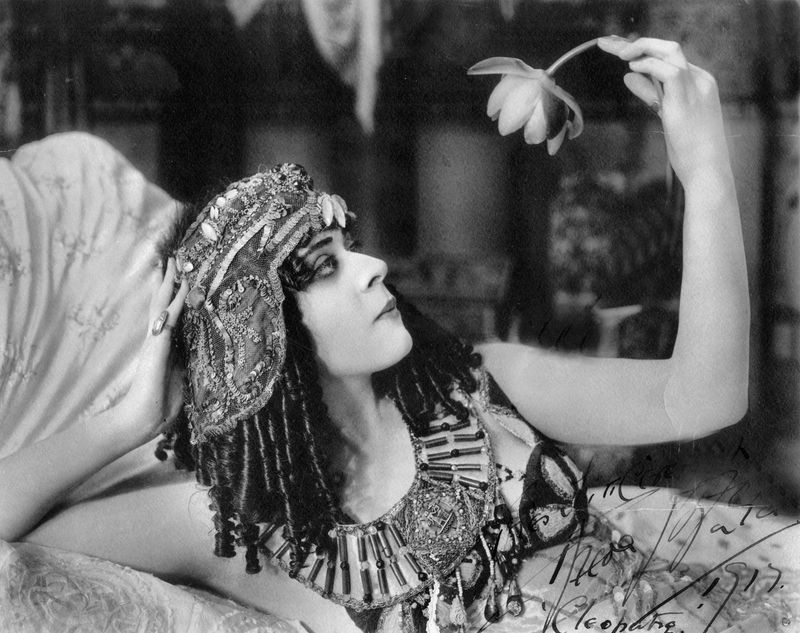
Cleopatra’s life is shrouded in myths, often overshadowing her true achievements.
Popular misconceptions paint her as merely a seductress, overshadowing her intelligence and political acumen.
These myths often stem from Roman propaganda, aimed at undermining her legacy.
However, historical evidence reveals a leader who was both astute and influential, navigating complex political landscapes with skill.
By examining the historical Cleopatra, we challenge these misconceptions, unveiling a narrative that highlights her as a multifaceted leader whose true story is as compelling as the myths surrounding her.

